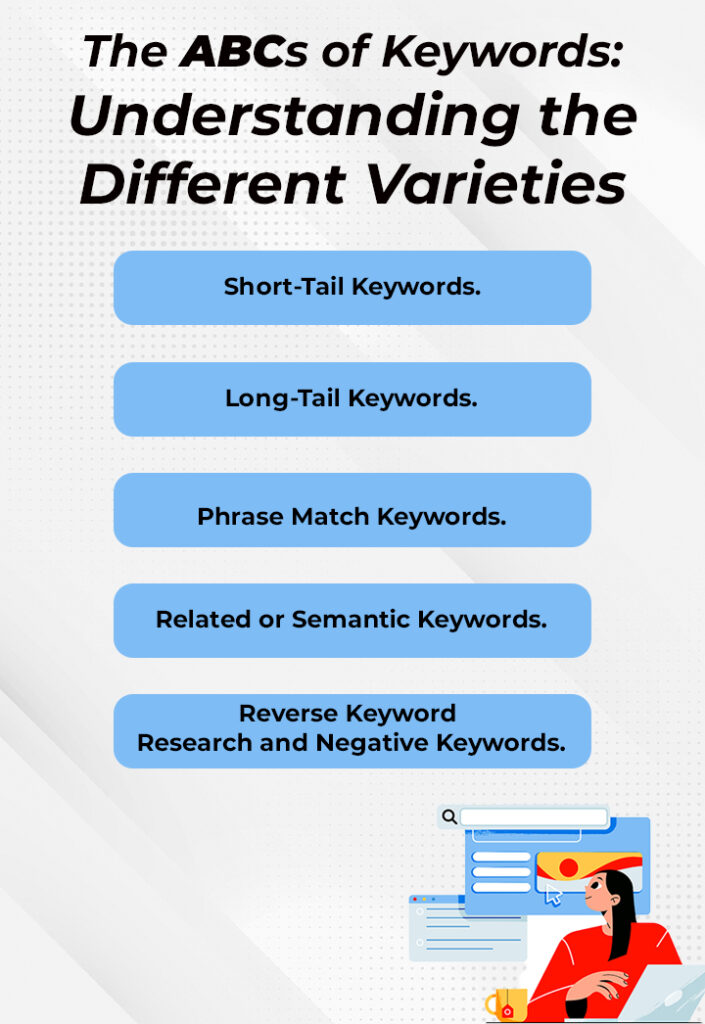Keywords are words and phrases used to improve an online presence, attract customers, and increase website visibility. By strategically selecting the right keywords for your content, you can gain more traffic to your website and optimize your online presence. Understanding the different types of keywords and use cases can help you create a keyword strategy that will make your site stand out from the rest.
Short-Tail Keywords.
Short tail keywords are typically just two or three words long and provide a broad overview of the topic. Short-tail keywords don’t have as much search volume, but they can give you insight into what type of content people are looking for. High-traffic short-tail keywords should be part of your keyword strategy because they’re often more general than long-tail variations and so have the potential to bring in a larger number of views.
Long-Tail Keywords.
Long-tail keywords are made up of four or more words and are much more focused than short-tail keywords. They tend to be more specific, ensuring that the content given in response to the searcher’s query is as relevant as possible. These terms have less search volume, but they represent a large percentage of searches conducted online. Long-tail keywords can help you reach niche markets and can result in higher conversion rates due to their specificity.
Phrase Match Keywords.
Phrase-match keywords are more specific than conventional keyword types. They involve enclosed phrases and a certain order of words. This allows you to target exact phrases instead of individual words. For example, “digital marketing institute” would be considered a phrase match keyword. Results using this type of keyword must contain the exact phrase in the query for it to be returned as a result in the SERPs (search engine results pages).
Related or Semantic Keywords.
Related keywords are variations of the original keyword that may still convey the same meaning. These variants could include synonyms and alternate forms as they reference the original query. For example, if you have a phrase match keyword like “digital marketing institute”, related keywords could be “online marketing classes”, or “digital marketing courses”. It helps to think of the different phrases users might type in search engines when looking for information regarding your topic.

Reverse Keyword Research and Negative Keywords.
Reverse keyword research involves finding those related keywords associated with the keyword in order to create a comprehensive list of terms that your potential customers might be searching for. This can help you select keywords most relevant and beneficial to your website, blog, or campaign. Negative keywords are words or phrases that you don’t want to associate with your advertisement. They’re also an important part of any successful search engine marketing strategy as they help prevent irrelevant traffic that may not convert into actual purchases.


